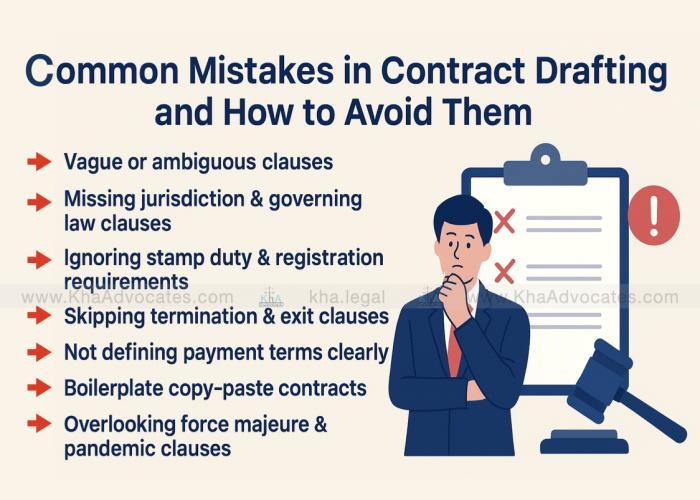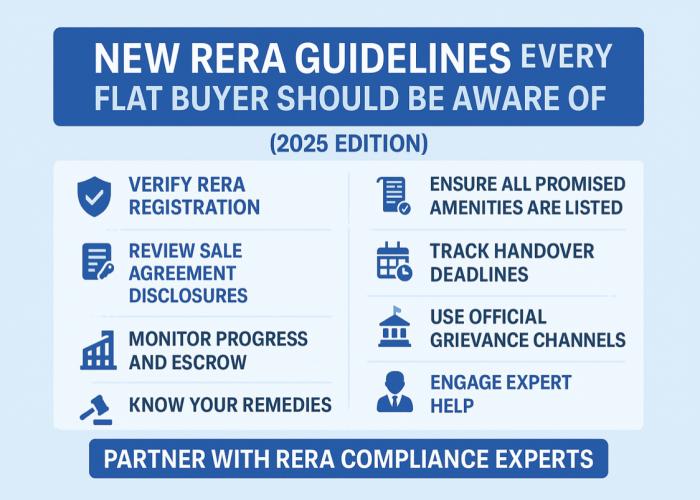
Published on: August 19, 2025
Contracts are the backbone of every business relationship. Whether you’re a startup signing your first vendor agreement or a corporation negotiating a multi-crore deal, a poorly drafted contract can lead to disputes, losses, and even litigation. In India, contract drafting is governed primarily by the Indian Contract Act, 1872, along with provisions of the Indian Stamp Act, 1899, and relevant judgments by the Supreme Court and High Courts.
In this blog, we’ll explore the most common mistakes made during contract drafting, legal consequences, landmark judgments, and practical tips on how to avoid them.
Consequence: Leads to multiple interpretations and disputes.
Case Law: ONGC v. Saw Pipes Ltd. (2003) – The Supreme Court held that vague clauses can render contracts unenforceable if they lack certainty.
Solution: Always use precise, measurable language. For example, instead of “deliver goods on time,” specify “deliver 500 units within 30 days.”
Consequence: Parties may file cases in multiple jurisdictions, leading to unnecessary litigation.
Case Law: Swastik Gases Pvt. Ltd. v. Indian Oil Corporation Ltd. (2013) – The Supreme Court emphasized the importance of jurisdiction clauses.
Solution: Insert a clear clause like: “This Agreement shall be governed by the laws of India, and courts at Kolkata shall have exclusive jurisdiction.”
Consequence: Courts may refuse to admit such documents as evidence.
Law: Indian Stamp Act, 1899 and Registration Act, 1908.
Example: An unstamped lease deed exceeding 12 months can be declared invalid.
Solution: Always calculate proper stamp duty and register agreements wherever required.
Consequence: Leads to endless disputes when parties want to exit.
Case Law: Tata Consultancy Services Ltd. v. Cyrus Investments Pvt. Ltd. (2021) – The importance of clear exit clauses in shareholder agreements was highlighted.
Solution: Define termination events (breach, insolvency, force majeure) and lay down notice periods, penalties, and handover procedures.
Consequence: Disputes over payment delays and penalties.
Law: Indian Contract Act, 1872 (Section 73 – Compensation for Breach of Contract).
Solution: Specify “Payment of ₹10,00,000 shall be made via bank transfer within 15 days of invoice, with 12% interest applicable on delays.”
Consequence: Many clauses may be irrelevant, illegal, or contradictory.
Case Study: A startup copied an NDA template online, which did not comply with Indian law. During litigation, the court rejected parts of the NDA.
Solution: Always customize contracts based on Indian law, industry, and party requirements.
Case Law: Halliburton Offshore Services v. Vedanta Ltd. (2020, Delhi HC) – The court recognized COVID-19 as a force majeure event.
Solution: Define force majeure events, notification timelines, and consequences (suspension or termination).
Hire a Lawyer: Professional vetting prevents loopholes.
Review Twice: Both parties should review drafts carefully.
Update Regularly: Revise old contracts to include latest laws and judgments.
Use Clear Language: Avoid jargon, keep it simple.
Q1. Is an oral contract valid in India?
Yes, oral contracts are valid under the Indian Contract Act, 1872, but difficult to prove in court. Always prefer written contracts.
Q2. What makes a contract legally enforceable in India?
Offer, acceptance, lawful consideration, free consent, lawful object, and capacity of parties.
Q3. Can a contract be on plain paper without stamp duty?
Yes, it’s valid but may not be admissible in court without proper stamping.
Q4. What happens if a contract has a missing clause?
Courts may interpret it against the drafter, leading to unfavorable judgments.
Q5. How can startups ensure safe contract drafting?
By consulting a corporate lawyer to draft customized agreements like Founders’ Agreement, Shareholders’ Agreement, and Employment Contracts.
Q6. Do contracts need witnesses?
Not always. Only certain agreements like property deeds, wills, or surety bonds need attestation.
Q7. Can e-contracts and digital signatures be used in India?
Yes, under the Information Technology Act, 2000, e-signatures and e-contracts are legally valid.
At KHA Advocates, we specialize in contract drafting, vetting, and negotiation for startups, corporates, and individuals. Our expert lawyers ensure your agreements are legally enforceable, customized to your needs, and dispute-proof.
👉 Avoid costly litigation – Book a consultation with KHA Advocates today!

